Mercury Myth-Busting! A Mom Who Knows Exposes The Top Ten Mercury Myths
In the video below, Mercury Myth-busting mom and founder of Mercury-free Baby, Rev. Lisa Sykes, testifies on mercury in medicine and vaccines before the United Nations Environment Programme, Intergovermental Negotiating Committee for the Global Legally Binding Instrument on Mercury. Rev. Sykes is also the author of Sacred Spark, the inspiring story of her work with the United Methodist Church to pass the first global resolution advocating the elimination of mercury from medicine. The resolution ignited a social justice movement on par with historical faith-based campaigns against child labor and slavery.
Think Mercury Is Out Of Vaccines In America?
Think Again.
Yes, some of the mercury-laden products are being shipped to developing countries, which is why so many countries are outright banning mercury now calling the betrayal a human rights violation. Listen to author, Lisa Sykes, MDiv, address the United Nations Environment Programme, Intergovermental Negotiating Committee for the Global Legally Binding Instrument on Mercury in the video above.
Here’s the myth-busting truth about mercury in medicine and where is it still easily found, fully cited and resourced. For more information on vaccine safety and informed choice, visit Kindred’s Book Store.

Myth #1 – “Thimerosal, 49.55% mercury by weight, is safe when used as a preservative in vaccines and other drugs.”

“Thimerosal, 49.55% mercury by weight, is safe when used as a preservative in vaccines and other drugs.”
The Facts: The Eli Lilly Material Safety Data Sheet (MSDS) for Thimerosal acknowledges that exposure to Thimerosal in utero and in children can cause “mild to severe mental retardation and mild to severe gross motor impairment.” The Sigma Aldrich MSDS lists abortion and fetal death as possible outcomes of in utero exposure.
Nonetheless, most seasonal and H1N1 flu shots for pregnant women and young children contain 25 micrograms of mercury in the form of Thimerosal. For this exposure to be safe, a child would need to weigh more than 550 pounds.
Thimerosal is a poison, neurotoxin, cancer-causer, and can interrupt the immune system and the normal development of an unborn baby or a child. Thimerosal is so toxic that putting it on your skin is illegal. However, the government not only allows but also defends its injection into the population, especially pregnant women and newborn children, as part of influenza vaccines currently recommended by the US Centers for Disease Control and Prevention (CDC).
Myth #2 – “Mercury was removed from all childhood vaccines in (pick any year between 1999 and the present).”
 The Facts: After “realizing” the amount of mercury in the childhood vaccination schedule recommended by the CDC exceeded all national and global maximum safety limits, the American Academy of Pediatrics and the United States Public Health Service called for the immediate removal of Thimerosal from all vaccines on July 7, 1999.
The Facts: After “realizing” the amount of mercury in the childhood vaccination schedule recommended by the CDC exceeded all national and global maximum safety limits, the American Academy of Pediatrics and the United States Public Health Service called for the immediate removal of Thimerosal from all vaccines on July 7, 1999.
By 2003, the vaccine manufacturers had begun to react to the 1999 call by lowering the mercury content in many of the Thimerosal-preserved early childhood vaccines. However, in April of 2002, the CDC began recommending that pregnant women and very young children get annual Thimerosal-preserved flu shots. The result was a ‘shell game’ which has caused widespread confusion in the public because of press reports declaring, “Since (select a year between 1999 and the present), mercury has been removed from all recommended vaccines for children except for some flu shots.”
Astoundingly, the total level of mercury exposure, if a child receives all the possible CDC-recommended vaccinations that are still Thimerosal preserved, from 6 months to 18 years of age, has actually increased. If a child gets an annual flu shot and it’s mercury containing they will get more during childhood than ever before.
Significantly, if you put the amount of mercury added to the immunization schedule as a result of the CDC-recommended seasonal and (in 2009) H1N1 flu shots** on one side of a scale, and the amount of mercury that was subtracted from that schedule by reformulating early childhood vaccines without Thimerosal on the other side, the total amount of mercury added far outweighs the amount of mercury subtracted. In addition, today most tetanus shots and the multi-dose Sanofi Menomune® vaccine that are approved by the US Food and Drug Administration (FDA) still contain 25-micrograms-a-dose mercury.
Currently, the actions taken by the vaccine manufacturers, the FDA and the CDC have increased the possible maximum childhood exposure to mercury from vaccines to twice the level that triggered the 1999 call to remove mercury from all vaccines as soon as possible! Also, new vaccine formulations with 25 micrograms of mercury per 0.5-mL dose are still being approved by the FDA for administration to pregnant women and children.
**Most doses of these flu vaccines are Thimerosal-preserved.
Myth #3 – “Thimerosal is well-tested, having been used for 70 years with no problems.”
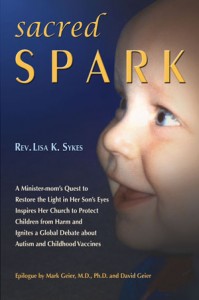
The Facts: Thimerosal has never undergone even one modern safety test. It was developed in 1927 and patented by Eli Lilly in 1928. It was first tested on small animals and killed a variety of mice, rabbits and chicks. After the animals died from exposure to Thimerosal, the decision was made to administer it to 22 patients suffering from bacterial meningitis during an epidemic in Indianapolis, Indiana in 1929.
Of the 22 persons given Thimerosal, all died, most within a day or two of administration. The doctor overseeing the trial, on stipend from Eli Lilly, declared that the patients had all died of meningitis and that Thimerosal was not observed to have caused any problem when administered to his patients. With that declaration, and a subsequent one by Eli Lilly staff that Thimerosal has a low order of toxicity for man, even though it killed small animals, Thimerosal was introduced into the drug supply. Yet, despite warnings in the published scientific literature that Thimerosal was toxic, and despite opposition to its use in every decade since, Thimerosal has remained in the drug supply.
The first protest on record against this highly toxic mercury compound was made in 1935 by the Pittman Moore Company which declared that, after testing, it found Thimerosal “was unsuitable as a preservative in serum intended for use in dogs…”
The FDA, passive with regard to safety testing, has never provided the results of appropriate toxicological tests on Thimerosal. Factually, the vaccine makers who use Thimerosal as a preservative are required by law to conduct and submit the results of such safety tests to the FDA before the FDA can legally approve a vaccine. Yet, the FDA has yet to produce even one of these vaccine maker’s toxicity studies, demonstrating Thimerosal safe for administration to humans, despite the fact that these documents have been sought in a court of law.
Myth #4 – “No published peer-reviewed studies have shown any harm from Thimerosal.”
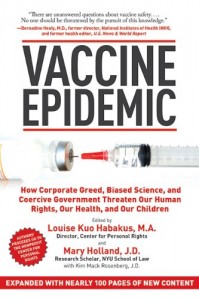
The Facts: The published scientific literature about Thimerosal can be divided into two distinct sets with opposite conclusions regarding its toxicity.
The first set is comprised of studies directly or indirectly supported by the pharmaceutical industry, showing that “there is no evidence of harm” from Thimerosal. These studies are the ones most often quoted by the Press. Most of these studies are statistical. In many cases, the data from which their conclusions are derived have been ‘lost’ or are unavailable or inconsistent. Significantly, the 2004 Institute of Medicine Vaccine Safety Review Committee, which defended Thimerosal, relied upon such statistical studies rather than the clinical evidence that the committee received.
The second set is comprised of hundreds of independent clinical and statistical studies demonstrating harm from Thimerosal. These studies are seldom quoted by the Press. Authors of these scientific papers include chemists, biologists, physicians and neurologists among others. Federal grants have often funded these studies. However, in many instances, when a researcher has concluded that Thimerosal causes harm, the grant has been withdrawn or ended. In one case, this happened after a researcher found an “autistic-like” condition in developing mice given injected mercury exposures like those human babies received from the CDC’s 1990’s immunization schedule. Independent researchers have lost jobs, been ostracized by peers, and/or had their medical licenses threatened, all because they dared to declare Thimerosal dangerous.
Published studies have shown that Thimerosal and its mercury breakdown product contribute to: Alzheimer’s, Cancer, Autism Spectrum Disorders, Attention Deficit Disorders, Bipolar Disorder, Asthma, Sudden Infant Death Syndrome, Arthritis, Food Allergies, Premature Puberty, and Infertility.
Offered for your consideration:
Watch the University of Calgary Video Showing Effects of Mercury on Neurons by clicking here
Myth #5 – “No federal statements indicate any cause for concern regarding the continuing use of Thimerosal.”
The Facts: The following critical federal statements testify to the likelihood of egregious conflict of interest and possible collusive activity with regard to the acceptance of Thimerosal by manufacturers, the FDA and the CDC:
After a three-year investigation, a Congressional report released May 2003 by the staff of the Subcommittee on Human Rights and Wellness, Committee on Government Reform, “Mercury in Medicine” Hearings of the United States House of Representatives stated:
“Thimerosal used as a preservative in vaccines is likely related to the autism epidemic. This epidemic in all probability may have been prevented or curtailed had the FDA not been asleep at the switch regarding the lack of safety data regarding injected thimerosal and the sharp rise of infant exposure to this known neurotoxin. Our public health agencies’ failure to act is indicative of institutional malfeasance for self-protection and misplaced protectionism of the pharmaceutical industry.”
On May 22, 2004, after hundreds of disclosures from citizens to the Office of Special Counsel, US Special Counsel Scott Bloch issued this statement:
“I hasten to add, however, that based on the publicly available information…it appears there may be sufficient evidence to find a substantial likelihood of a substantial and specific danger to the public health caused by the use of thimerosal/mercury in vaccines because of its inherent toxicity.”
On July 15, 2005, Liz Birt, J.D., L.L.M., (former legal counsel to the Government Reform Committee, US House of Representatives) and Jim Moody, J.D., in a letter to Lauren Fuller, Chief Investigative Counsel, United States Senate Health, Education, Labor, and Pensions (H.E.L.P.) Committee outlined a “Thimerosal Timeline” and a “Statement of Criminal Charges” against specific Federal Officials, including the following:
“FDA: Criminal negligence in not instituting a Class I recall of all vaccines administered to infants containing Thimerosal in July of 1999 and again in June of 2000…”
On July 19, 2004, Michael E. Little, Deputy Inspector General for Investigations in the Office of the Inspector General for the Department of Health and Human Services, in a letter to Rev. Lisa K. Sykes, stated:
“…we have determined that your above allegation (that Thimerosal is being used in order to increase the manufacturer’s profit margins) represents a potential conflict-of-interest issue which may be criminal in nature…”
Myth #6 – “Individuals who oppose the use of mercury in medicine are anti-vaccine.”
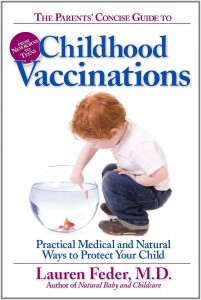
The Facts: Contrary to sound bites you hear on the nightly news, to be “anti-mercury” is not to be “anti-vaccine.” In fact, by advocating this common-sense measure of removing mercury to ensure the safety of vaccines, anti-mercury advocates are actually championing vaccine safety. The Vaccine Program of this nation should not be a delivery system for a poison. Those arguing against the unnecessary use of a known neurotoxin in the vaccine/drug supply are seeking to safeguard public confidence in the vaccine program, not destroy it. Anti-mercury advocates want vaccines to be produced with non-toxic preservatives or, better yet, with no preservatives using clean manufacturing processes, a realistic and viable option in developed nations since the 1980s.
Tragically, in the face of catastrophic liability, those who defend mercury as a part of medicine are failing to correct a grave mistake. This mistake is a clear and present danger to the public and, especially, to the children. Inertia and denial in the federal government and in industry are contributing to the medical community’s protecting the place of mercury in medicine rather than protecting the health and safety of patients. This ordering of priorities is unethical.
If left uncorrected, this situation will continue to destroy public confidence in our national vaccine programs as more and more people realize that the escalating rates of chronic illness and developmental disorders are associated with Thimerosal, an unnecessary and indefensible part of our vaccines. Importantly, we are not assessing what the injuries already caused by Thimerosal will do to our nation’s future productivity with the government-admitted rate of 1-in-every-6 children being diagnosed with a developmental or behavioral disorder in 2004. Advocates calling for the removal and ban of the use of mercury are seeking to avoid an impending public health crisis by assuring that, immediately, vaccines are: a) made safer and b) manufactured according to all the current applicable federal safety regulations — not the non-existent drug safety laws of 1929!
Myth #7 – “The movement to ban mercury from medicine is comprised of ‘hysterical’ parents who wrongly blame vaccines for their children’s autism.”

The Facts: Parents of mercury-injured children continue to argue tirelessly that unnecessarily exposing a child, in utero or after birth to mercury, is an avoidable risk. They know this avoidable risk is logically associated with the onset of neurodevelopmental and other disorders. With no compelling reason to use an ineffective neurotoxin as a preservative, and every reason, based on Thimerosal’s demonstrated toxicity, to eliminate it, parents make a logical, reasoned argument for banning Thimerosal from medicine –especially from vaccines intended for our children whose brains are still developing.
A growing number of informed physicians, politicians, and independent scientists are joining in this no-nonsense argument for placing the well-being of children first, above the profit margins of manufacturers. These professionals and, now, the faith community have joined in the call for “Protecting Children from Mercury-containing Drugs.”
On April 29, 2008, the General Conference of the United Methodist Church, representing 11.5-million persons of the Christian Faith, adopted a statement of the same name as a global and historic resolution of the denomination. This resolution calls upon the World Health Organization, international and national health officials/agencies, including the US Secretary of Health and Human Services, the FDA and the CDC to:
* immediately prioritize mercury-free stocks of vaccines and other pharmaceutical products for pregnant women, newborn infants and children;
* provide “the opportunity of informed consent” and promote product education to individuals about mercury exposure through their pharmaceutical products or vaccines, detailing the known risks of toxicity and Federal Safety Guidelines for exposure to mercury; and
And it further resolves, that:
“until mercury is banned from medicine, the medical missions, hospitals, clinics and ministries of The United Methodist Church strongly encourage use of mercury-free vaccines over mercury-containing ones. Acknowledging the difficulties in some contexts, we strongly urge that other organizations who are responsible for immunization efforts to prevent disease such as the Global Alliance for Vaccines and Immunizations, United Nations Children’s Fund (UNICEF), Rotary International, the Bill and Melinda Gates Foundation, as well as any other organization from which vaccines are purchased, join The United Methodist Church in the educating the public about and advocating for mercury-free drugs and vaccines.”
With this bold witness by the United Methodist Church, the attempt by parent-advocates and others to ban mercury from medicine has appropriately grown into a social justice movement. It is now the community of faith, which esteems each life a priceless gift from God, which will lead this urgent public health reform.
Myth #8 – “Autism is genetic.”
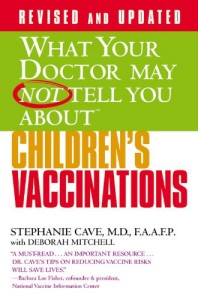
The Facts: Billions of dollars are being spent trying to prove that the autism epidemic is genetic. “Genetic drift,” the amount genes change over time, is 1% per 100 years. Therefore, with such a slow pace of change, there can be no such thing as a sudden ‘genetic epidemic.’ While a rare type of genetic autism may exist (at the background rate of ‘1 in 10,000’), the autism epidemic (at about ‘1 in 100’) cannot be due to genetic drift.
In addition, if autism were genetic, because it affects more males than females, geneticists teach us that it would have to be to an X-chromosome-linked disorder. (Girls, having two X chromosomes, would then have a redundant good chromosome, so the disorder would not manifest as often in females as in males who have only one X chromosome.) For a girl to have autism then, she would need to receive a defective X-chromosome from each parent, meaning they both carried the defect. The problem lies in the fact that if the father has the defect to pass onto his daughter, and it is on his only X-chromosome, then he should be affected by the disorder as well. Since autistic daughters rarely, if ever, have autistic fathers, the theory that “autism is genetic” fails because its claim does not match the empirical evidence.
There are two main recognized causes for any epidemic: an infectious agent or a widespread toxic exposure. Autism is due to the latter. Corresponding to the sharply increasing level of mercury in the immunization schedule globally, which started in the late 1980’s, there has been an increasing rate of autism among children. This also explains why autism among 40-, 50-, 60-, 70- and 80-year-olds is not epidemic, but rather rare. Those over 30 did not routinely get levels of vaccine-related mercury exposure high enough to cause autism.
Only when autism is understood as a widespread toxic exposure, can you explain the fact that everywhere boys are affected about 4 times more often with this disorder than girls. Researchers have established that testosterone increases the toxicity of mercury, while estrogen protects from it. Therefore, at the level contained in our vaccines, mercury affects boys disproportionately due to their having higher testosterone levels. This is what creates the ‘4 to 1’ ratio of males to females affected by the level of mercury poisoning in our children that is labeled as autism.
While there are many contributing and lesser sources of environmental mercury exposure, the one which precipitously and simultaneously changed with the advent of the autism epidemic was the mercury exposure from the increasing number of Thimerosal-preserved vaccines in the CDC’s recommended childhood vaccination schedules. Those children with a higher sensitivity to mercury and/or a higher level of exposure are those most impacted by this increased exposure to vaccine mercury. This is why not all children who received mercury-preserved vaccines are autistic: while the autism epidemic is not genetic, susceptibility to mercury poisoning has a strong genetic component and is unique for each individual!
Myth #9 – “Since mercury was removed from vaccines, autism has increased, so Thimerosal cannot be the cause of the autism epidemic.”

The Facts: In the face of such a statement, one must ask whether the mercury has truly been removed from vaccines in the country referenced. Then, one must ask from what year the sample rates under discussion were taken. The current rate given in the American media is about ‘1 in 68’. This rate is based upon statistics from children born in 1998. In regard to this particular rate and year, it reflects a time when mercury had not been removed in the United States, and the ‘1 in 100’ rate is actually not a new measure, but rather a crude estimate from among the peak years of mercury exposure in the American early childhood immunization schedule.
In assessing more current rates of autism, computed based on data from 2002 on, remember that while mercury was removed from many early childhood vaccines, it was reintroduced at the preservative level into the childhood schedule in the form of the seasonal and, later, the H1N1 flu vaccines. With each passing year since, more flu shots have been recommended, and the categories of persons who should take them, based on health conditions and age, have been expanded. So, continuing diagnosis rates for autism and other chronic illnesses simply reflect the continuing presence of mercury in the current vaccine supply to the present day.
Some foreign studies which claim that the autism rate increased after Thimerosal was removed are equally misleading. From Denmark, for example, a study actually began by counting only children with autism who were institutionalized.
Then when the government announced the Thimerosal had been removed from vaccines, suddenly home-bound children with autism were added to the count. Therefore, the number of children diagnosed with autism in the study did rise ‘once the mercury was removed’ – not because more children were diagnosed but only because more with diagnoses were counted! Studies such as these are known as “Garbage in-Garbage out” studies. When the basis of a study changes in the middle and this fact is omitted from its publicized results, then the perception created by the study is false.
What we do know is that the factual and complete removal of mercury from the vaccine/drug supply would tell us, definitively, if mercury caused the autism epidemic. Sadly, such attempts to completely withdraw Thimerosal have met with loud objections from the American Academy of Pediatrics, the American Medical Association, the Institute of Medicine of the United States National Academy of Sciences, and others. These organizations, as well as our national health agencies, have actually lobbied federal and state officials to keep Thimerosal in vaccines.
Among the Amish who do not vaccinate, the rate of autism is strikingly low. Among those Pennsylvania Amish children actually diagnosed with autism, three were adopted and had received their vaccines prior to adoption, and one lived down-wind of a coal-burning power plant. Such anecdotal evidence suggests that the increases in recommended mercury-containing vaccines are causally related to the autism epidemic.
Myth #10 – “There’s more mercury in a tuna fish sandwich than there is in one mercury-preserved flu shot.”
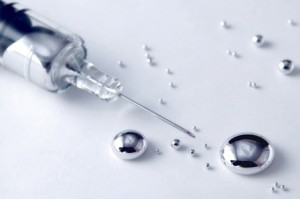
The Facts: Remember, the United States Food and Drug Administration warns pregnant women to limit their consumption of fish because its mercury content may harm their unborn child. Sadly, neither the FDA nor the CDC has issued a similar warning about mercury-preserved flu shots. Clearly, the lack of a warning to pregnant women and young children regarding the mercury content of their vaccines makes no scientific sense.
Another scientific fallacy is the suggestion that the type of mercury (ethyl) in Thimerosal is less toxic than the type of mercury (methyl) in fish. This suggestion is not true. Ethyl mercury is actually more toxic to the kidneys, and equally toxic to other parts of the body as methyl mercury. All forms of mercury are highly toxic. When used in a vaccine, the mercury’s toxicity does not magically disappear! In fact, the mercury in a vaccine poses special dangers because it is injected.
Scientists know that eating mercury in food is completely different from injecting it directly into body and blood. This is because the body has defensive mechanisms to limit the absorption of toxins as they move through the digestive system. Just because you consume mercury in a tuna sandwich does not mean that the total mercury content of that meal will end up in your brain.
By contrast, injecting mercury in the form of Thimerosal directly into the body as part of a vaccine bypasses the body’s natural absorption defenses. The mercury enters the blood stream, but does not remain there long. It escapes from the bloodstream very quickly and enters the tissues in the body. The body is not able to defend itself well against injected mercury, and if a genetic susceptibility to mercury exists, the exposed individual may be able to excrete only minimal amounts of the injected mercury toxin.
We must also note that mercury crosses the placental barrier, and a pregnant woman’s body preferentially dumps mercury into her fetus. Thus, the unborn child, being mostly developing brain, sustains huge exposure from injected mercury, in particular, at critical stages of neurological development.
Remember also, that a newborn child excretes very little mercury. Understanding this, you realize that just because a study may report mercury levels are low in the blood, urine and/or feces after exposure to mercury, this does not mean the child has excreted the toxin (as some have implied in poorly done scientific studies.) Instead, it more likely means that the mercury has already sequestered itself in the vital parts of the body.
For anyone, of any age, mercury delivered through injection behind a body’s defenses is a much more significant exposure than mercury ingested with food. A much greater percentage of the toxic exposure will accumulate in the brain, contributing to neurodevelopmental disorders in the young, and dementia (Alzheimer’s) in the elderly. An increased level of mercury in the body has also been associated with aggression and mood disorders.
It is advisable to avoid mercury whenever you can, whether it is present in food, a vaccine or the environment (air, water, etc.). While many substances in our world, such as tuna fish, contain low levels of mercury, most are not classified as hazardous waste. Unused vaccines with a preservative level of Thimerosal, however, are considered hazardous waste because of their high mercury content. If not injected into patients, discarded vials of these mercury-preserved vaccines, therefore, must be disposed of in steel drums, by law.
In contrast, a can of tuna fish is not under this same stipulation, and more importantly, if it were, you wouldn’t eat it, would you?
The Mercury-free Baby’s #1 Challenge: To Safeguard the Public from Mercury in Medicines
The high order of toxicity from Thimerosal and its ethylmercury breakdown product has been known and published for decades. Nonetheless, Thimerosal remains in the drug supply, especially in various vaccines manufactured both for the United States and globally. The ubiquitous and largely unchecked place of Thimerosal in pharmaceutical products, therefore, represents a medical crisis in the modern day. Reforms in the manufacture and the licensing of vaccines and other drugs, which should have been accomplished proactively, had anyone properly assessed their mercury content, must now be conducted, reactively, under significant systemic stress. With no warning, recall, or ban of mercury in vaccines and other drugs as of yet, the victim of this mandated, unwarranted, and massive mercury exposure is still an unsuspecting public, and most especially its unborn and newborn children.
David A. Geier, Lisa K. Sykes, Mark R. Geier
1The Institute of Chronic Illnesses, Inc., 2CoMeD, Inc., and 3The Genetic Centers ofAmerica, Silver Spring, Maryland, USA
Journal of Toxicology and Environmental Health, Part B, 10:575–596, 2007.
Copyright © Taylor & Francis Group, LLC
ISSN: 1093-7404 print / 1521-6950 online
DOI: 10.1080/10937400701389875


I sit on the far side of your fence. I do not believe there is ANY justification for vaccination. However, as far as the content goes for mercury based products, I find this article quite enlightening. I just wish that there were more links or citations for the facts being given. It would be quite helpful in talking to others about this issue. Please read the link I have provided to see why it’s not just mercury, but in fact the whole foundation of vaccination that is questionable.
http://www.ncbi.nlm.nih.gov/pubmed/22386268
In a real world situation, it was noted over 30 years ago that antibody titer elevation was not related to protection against tetanus in particular. It is nearly impossible to judge “effectiveness” of vaccines because there is a medical assumption that a clinical diagnosis of a so-called VPD must be wrong if the patient has been vaccinated. Thus, there is a built in “pro-vaccine” bias in reported cases of any given VPD as the VPD is summarily dismissed as a cause and a potential misdiagnosis can be given thus rendering “reported” cases as worthless in any statistical study.
http://www.ncbi.nlm.nih.gov/pubmed/1565228
“The diagnosis of tetanus, nevertheless, should not be discarded solely on the basis of seemingly protective anti-tetanus titers.”
Steve,
Thank you for your feedback. All of the entries above are hyperlinked, and all of the mentions of sources are hyperlinked as well. We were careful to include as many resources as possible before posting this article on Kindred. If you have a question about a specific fact, please email me and we will research it and get the source up asap. Thank you again for your feedback!
Lisa Reagan
Kindred Editor
info@kindredcommunity.org